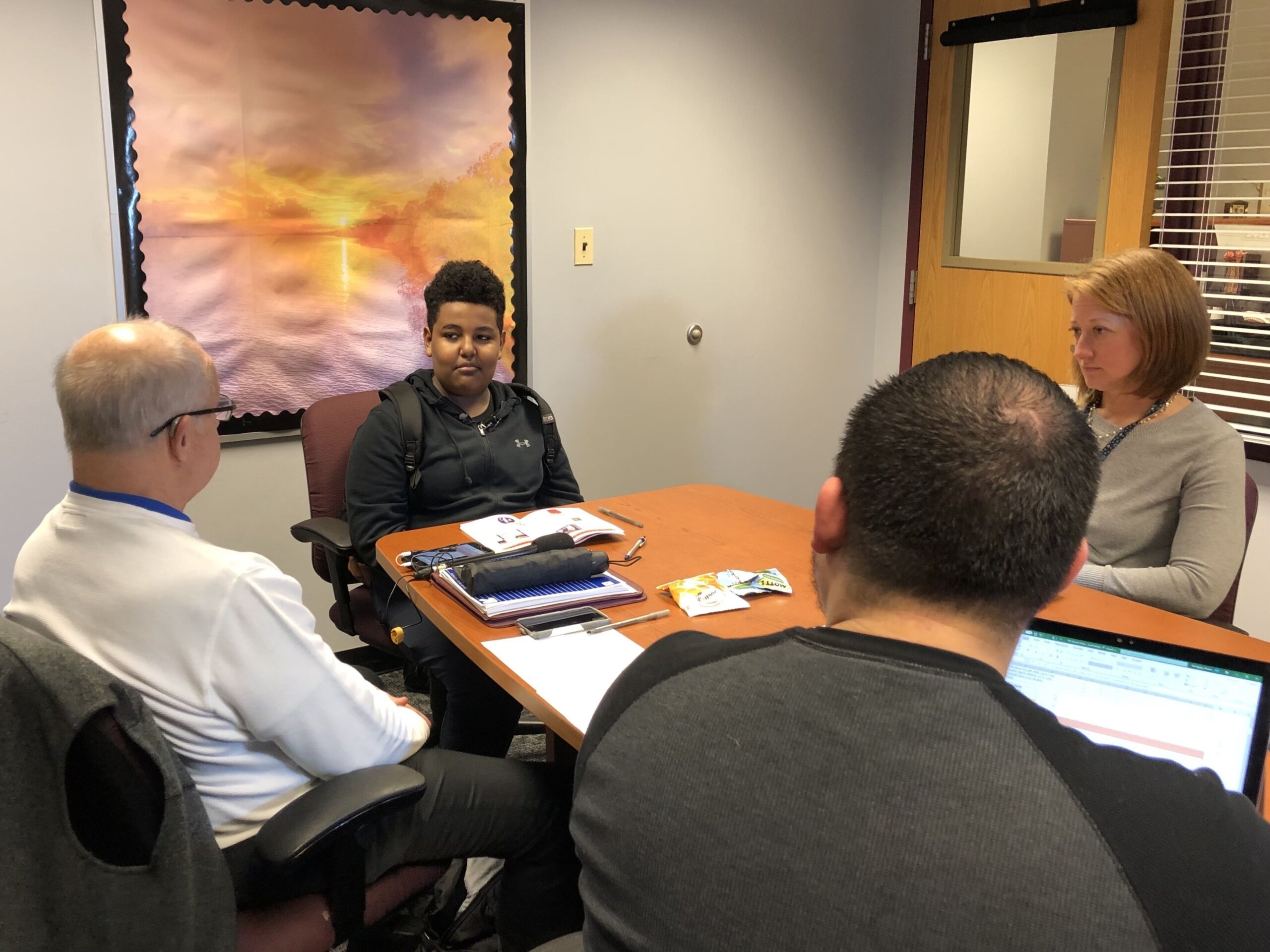When 12-year-old Israel Makeda’s absences from Montgomery Village Middle School started piling up, school staff and the Montgomery County State’s Attorney’s Truancy Prevention Program got the 7th grader involved in a 10-week program to get him back on track. His absences went from days to weeks, in part due to illness and in part due to “other kids,” Makeda said.
This week, Makeda had the last meeting with his mentors on the team — he’s wrapping up his participation in the program.
When he entered a conference room at school on Thursday, he was met by members of the team, including Michael Durso, a former high school principal and school board member in Montgomery County, now a volunteer in the program; Kristy Poker, a pupil personnel worker with the county school system and Moises Rodriguez with the State’s Attorney’s Office.
Durso reviewed some of the data the team keeps on student progress with Makeda.
“In checking your grades,” Durso said, “I don’t know how much more you can improve them, Israel … six A’s and a B.”
Rodriquez added, “You know that means you made honor roll.”

The 7th grader looked surprised. He’d expected “average” grades, he told his mentors.
Durso asked a question designed to help Makeda see the connection between being in school and his improved grade performance. “I guess because I was able to see more stuff in the classroom, I was able to understand it,” Makeda said of his classwork.
Makeda saw improved grades and was even eligible for items offered as incentives to students who complete the program. He picked out some speakers for himself and some art supplies for his little sister. He’ll also be speaking at his graduation from the 10-week program next month.
After the meeting, Rebecca Marcolini, the director of the program, explained that students are often chronically absent for a variety of reasons. There are cases, said Marcolini, of “children who are being bullied,” or in some cases, children may be asked by their parents to stay home to care for younger siblings.
“In that case, we’re able to reach out to the parents and try to find them resources,” including daycare, she said.
“I’m afraid a lot of times students are used to being preached at” when it comes to unexcused absences, Durso said.
The program, a partnership between the State’s Attorney’s Office and the county’s school system, takes another approach. There’s no finger-wagging, instead, there’s lots of listening.
Durso explained, “We remind them we’re not running back to the principal and telling them this and that. Once a level of trust can be nurtured, things can turn around.”
Marcolini said of the program, “It really is an opportunity for a child to have all eyes on them, and be paid attention to and be heard,” and in the setting, they can “speak their mind freely.”
Makeda, sitting on a bench in a school hallway with a reporter, said that was his experience.
“There are people (who) actually (have) good ways of supporting me,” he said. “It felt good actually having someone to talk to … for more than five minutes.”
There are 17 middle schools active in the program, and a high school will introduce it soon.
Marcolini said more volunteers could make further access to the program possible. “They’re always in demand.”
For more information, visit their website.








